Top Ten Performances of 2019
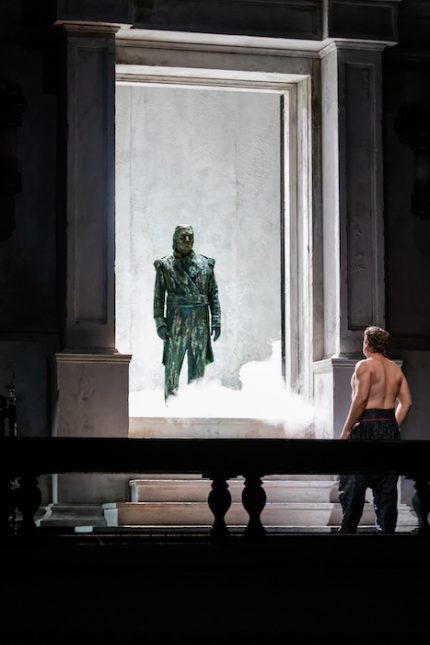
1. Mozart’s Don Giovanni. Lyric Opera of Chicago.
It didn’t look promising for Lyric Opera’s revival of Mozart’s Don Giovanni when Ildar Abdrazakov pulled out of the title role shortly before rehearsals were to begin. Fortunately, Lucas Meachem was available to take over, and with this fine American baritone leading the way, Lyric delivered a Don Giovanni for the ages in November.
Rarely will one experience as stellar an ensemble lineup in this notoriously hard-to-cast opera, all working together seamlessly and delivering the cynical humor as well as the moral twilight of Mozart’s dramma giocoso with equal relish: Meachem, Matthew Rose (Leporello), Amanda Majeski (Donna Elvira) Rachel Willis-Sørensen (Donna Anna), Mika Kares (Commendatore), Ben Bliss (Don Ottavio), Ying Fang (Zerlina) and Brandon Cedel (Masetto)—the last five all making their company debuts. Robert Falls’ fluent, stylish staging remains theatrical titanium and James Gaffigan delivered a seminar in Mozart opera conducting, just as he did with Lyric’s Così fan tutte in 2018.
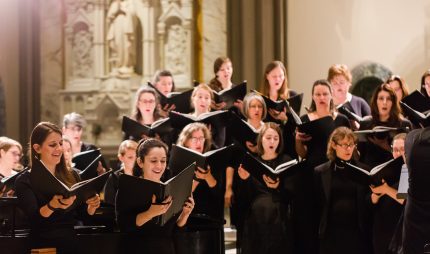
2. Vespers by Einojuhani Rautavaara and music of other Baltic composers. Chicago Chorale/Bruce Tammen.
Bruce Tammen’s hardy band of nonprofessional singers were at their finest in the Chicago Chorale’s program of Baltic music in March. The main work was the Vespers of Einojuhani Rautavaara, a strange, audacious and tortuously difficult work. The sixty-four Chorale members handled all of the Finnish composer’s demands—whispering, pleading in supplication or soaring with spiritual confidence—and the singers brought remarkable vocal polish, expressive versatility and deep dedication to this performance. Tammen’s alert yet flexible direction impeccably balanced sections and seemed to find ideal tempos throughout. Shorter works by Arvo Pärt, Peteris Vasks, Gunnar Eriksson, Ola Gjeilo and Tõnis Kaumann were no less memorable in an event that showed once again that some of the most compelling music-making in Chicago is being done by smaller ensembles outside of the Loop.
3. William Schuman’s Symphony No. 9 (“Le fosse Ardeatine”). Chicago Symphony Orchestra/Riccardo Muti.
It’s ironic that Riccardo Muti’s finest performance of 2019 came in a symphony by William Schuman, when the CSO music director has held American music at arms’ length for most of his decade-long Chicago tenure.
Yet in his first performance of an American symphony since taking the reins as CSO music director in 2010, the Italian conductor showed a deep emotional and musical affinity for Schuman’s Ninth Symphony in February. Written to commemorate the Nazi massacre of 335 Italian civilians—men, women and children—in the Ardeatine Caves in 1944, Schuman’s 1968 symphony is a dark and relentless work, and Muti led a performance of massive roiling power and searing intensity in this belated Chicago premiere.
4. Richard Strauss’s Elektra. Lyric Opera.
As with this fall’s Don Giovanni, Lyric Opera’s revival of Strauss’s Elektra in February proved even more successful the second time around. Even with a leg injury, Nina Stemme embodied the role of the title heroine, driven to madness by her mother, the queen Klytämnestra who has murdered Elektra’s father. In her company debut the big-voiced Swedish soprano put across a blistering performance flinging out top notes in nerve-shattering fashion. The supporting cast was on the same high level and, in his belated Lyric debut, Donald Runnicles conducted magnificently.
5. Jake Heggie’s Moby-Dick. Chicago Opera Theater.
It was Chicago Opera Theater that finally brought Jake Heggie’s Moby-Dick to local audiences in April. Richard Cox as the driven Ahab may have lacked some heldentenor punch for the big moments, but this was a terrific production with a strong and unified cast, and effective staging from Utah Opera. COT’s young music director Lidiya Yankovskaya sealed her early promise, leading a sweeping, richly textured performance of Heggie’s epic yet intimate score, the finest American opera of recent decades.
6. Music of Anton Arensky and Ernest Bloch. The Chamber Music Society of Lincoln Center.
The Chamber Music Society of Lincoln Center went beyond the usual repertorial suspects in May at the Harris Theater to present Anton Arensky’s String Quartet No. 2 and Ernest Bloch’s Piano Quintet No. 1—bleak, powerful yet rewarding rarities, both of which deserve to be far better known. The youth contingent of CMSLC contributed not just the usual ensemble polish but committed playing of bracing virtuosity that invested these works with a real sense of fresh discovery.
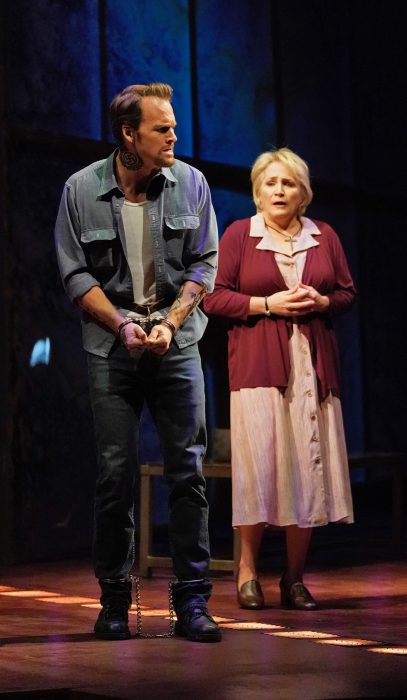
7. Jake Heggie’s Dead Man Walking. Lyric Opera.
It’s taken nearly two decades for Jake Heggie’s Dead Man Walking to make it to Lyric Opera but the November debut of the American composer’s acclaimed first opera proved worth the wait. Patricia Racette seemed miscast as Sister Helen Prejean—vocally and dramatically—but with Ryan McKinny as the condemned murderer Joseph de Rocher and Susan Graham (who created the role of Sister Helen) as his mother, this was a riveting, wholly compelling night of musical theater. Nicole Paiement—only the second woman in Lyric Opera history to conduct a main-stage production—made a most impressive Chicago debut.
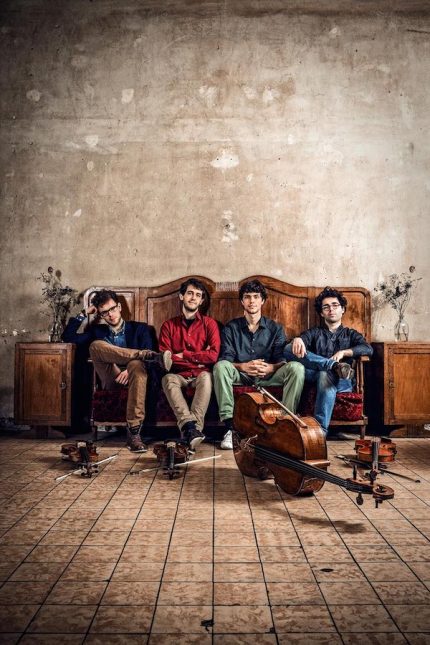
8. vision string quartet. University of Chicago Presents.
In November— a rich month for Chicago music this year—the vision string quartet made its U.S. debut at Mandel Hall in the University of Chicago Presents series. Playing the entire program from memory—while standing up Emerson Quartet style—this scarily talented young German foursome demonstrated jaw-dropping technical bravura and symbiotic ensemble. Yet the instrumental dare-devilry was put entirely at the service of the music, in this case by Bacewicz, Haydn and Schumann. The vision members also showed a wry musical sense of humor, as displayed in Samba, their blazing pizzicato encore that barely rose above a pianissimo.
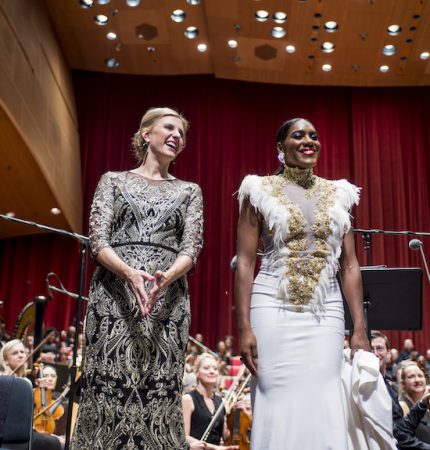
9. Mahler’s Symphony No. 2. Grant Park Orchestra and Chorus/Carlos Kalmar.
Carlos Kalmar does such a dizzying range of repertoire so well every summer at the Grant Park Music Festival that it’s often difficult to zero in on a highlight. Not so this year when in the final weekend of the festival in August, he led a richly idiomatic performance of Mahler’s mighty “Resurrection” symphony. In addition to drawing an astounding range of dynamics in the hectic outside milieu, Kalmer led a performance that took majestic flight in the finale with a crucial assist from soloists Amanda Majeski and J’nai Bridges, and Christopher Bell’s first-class Grant Park Chorus.
10. Music of Rachmaninoff and Tchaikovsky. Illinois Philharmonic Orchestra/Stilian Kirov.
After several false starts and a change of music directors over the last decade, the Illinois Philharmonic Orchestra’s fortunes are on the rise again under current conductor Stilian Kirov. In March, Kirov led his southwest suburban ensemble in a sweeping, richly textured performance of Rachmaninoff’s epic Symphony No, 2 with notably luxuriant string playing. On the first half William Wolfram delivered a comparable knockout performance of Tchaikovsky’s rarely played, fearsomely difficult Piano Concerto No. 2, played in its original version with every knuckle-busting bar intact.
Best Performance That Did Not Take Place in Chicago.
Louis Langrée and the Cincinnati Symphony Orchestra presented the world premiere of Christopher Rouse’s Symphony No. 6 in October, just one month after this great and prolific American composer died at age 70. The feeling of leave-taking is unmistakeable in Rouse’s elegiac, consummately crafted final work, the finest of Rouse’s six in the genre, all of which deserve to be more widely performed.
Honorable Mentions
Bernard Rands’ DREAM premiere and Verdi’s Aida, both led by Riccardo Muti with the Chicago Symphony Orchestra. Leif Ove Andsnes in the Grieg Piano Concerto and Hilary Hahn in Sibelius, also with CSO. Carlos Kalmar leading the Grant Park Orchestra and Chorus in Beethoven’s Missa Solemnis and Frederick Delius’s A Mass of Life. Thompson Street Opera’s I will fly like a bird. Dover Quartet playing Schubert and Tchaikovsky at the Winter Chamber Music Festival. Lyric Opera’s Barber of Seville.
Also Iestyn Davies singing sacred music of Bach with the Haymarket Opera ensemble. The Newberry Consort’s French program. Chicago Opera Theater’s The Scarlet Ibis. Nicholas Kraemer’s “Hunt” program with Music of the Baroque. The Escher Quartet’s Beethoven at North Shore Chamber Fest. Walter Piston’s Sixth Symphony from Stilian Kirov and the Illinois Philharmonic. Matthias Goerne and Daniil Trifonov at Ravinia.
_______
Sondra Radvanovsky in “The Three Queens” at Lyric Opera. The American soprano’s triumphant trifecta of the finales to Donizetti’s “Tudor Queens” operas (Anna Bolena, Maria Stuarda and Roberto Devereux) was a memorable feast of bel canto the likes of which one had thought had died with Sills and Sutherland. (John von Rhein)
The early music consort Third Coast Baroque gave the Chicago premiere of Handel’s first oratorio, Il Trionfo del Tempo e del Disinganno in April. The performance abounded in Handelian grace, helmed confidently by music director Rubén Dubrovsky, and elegantly highlighted by vocal soloists Nathalie Colas, Angela Young Smucker, Clifton Massey, and Owen McIntosh. (Tim Sawyier)
Biggest News Story
No contest. The biggest story on the classical beat this year was the Chicago Symphony Orchestra musicians strike. The seven-week walkout was the longest in CSO history as well as the most bitter and acrimonious. With over fifty concerts cancelled in March and April—including all non-CSO events at Orchestra Hall as well—audience members and onlookers grew dismayed and impatient as the weeks wore on. Some of the dubious claims and insults aimed at the orchestra’s board, management and largest benefactors by the union and the more strident players angered donors and concertgoers alike as much as the cancelled events.
Financially, the strike proved a virtual wash. The revenue lost in ticket sales was largely offset by the money saved in overhead and musician salaries with Orchestra Hall shuttered for two months.
Yet whatever the economic wins or concessions, the strike proved a debacle from a public relations standpoint, the effects of which continue to resonate quietly yet unmistakably. Anyone who believes that the rows of empty seats at CSO concerts this fall have nothing to do with the strike’s overheated rhetoric is deluding themselves.
Best Programming
The Collaborative Works Festival’s venturesome fall lineup was devoted entirely to living composers, moving in three programs from Chicago women to a broader American program and international composers. This is the kind of thoughtful, intelligent programming that should be the model in a city like Chicago and sadly isn’t.
Best Conducting Debut
Donald Runnicles in his belated first appearance at Lyric Opera led a magnificent performance of Strauss’s Elektra with the turbocharged playing of the Lyric Opera Orchestra in the pit just as thrilling as anything happening onstage.
Second Best Conducting Debut
Simone Young led the Chicago Symphony Orchestra in majestic Wagner excerpts from Götterdämmerung and an exhilarating performance of the Brahms/Schoenberg Piano Quartet in G minor.
Most Disappointing Conducting Debut
Technically not a debut since Enrique Mazzola previously (and impressively) led two bel canto works at Lyric Opera. But in his first appearance since being named Lyric’s music director designate, Mazzola’s conducting of Luisa Miller was sorely lacking in Verdian thrust and dramatic impact.
Biggest Musical Disappointment
James Stephenson’s Bass Trombone Concerto proved a cacophonous, wildly overscored mess in its world premiere with CSO trombonist Charles Vernon reduced to a bit player in his own concerto.
Biggest Musical Surprise
On the same June program Jennifer Gunn showed that a piccolo can be a worthy solo instrument in concertos by Vivaldi and Ken Benshoof.
Worst Opera Production
Even in its best year in a decade, Lyric Opera would not be Lyric Opera without at least one numbingly awful production. This time it was Richard Jones’ scabrous staging of Handel’s Ariodante in March. The company managed to snatch defeat from the jaws of victory, wasting a first-class cast of Baroque singers in a vile revisionist production replete with rape, adolescent porn cartoons and assorted idiocies that had zero to do with Handel’s opera. Mr. Jones, please get some professional counseling.
Best Batting Average
After making an impressive Chicago Opera Theater debut with Tchaikovsky’s Iolanta last year, music director Lidiya Yankovskaya continued to hit home-runs in her subsequent COT appearances, including Jake Heggie’s Moby-Dick and the Everest/Aleko double-bill in November.
Best Way to Ruin a Great Summer Festival
Someone at the Grant Park Music Festival had the brilliant idea of installing a Brobdingnagian Jumbotron over the Pritzker Pavilion stage for simultaneous—and needlessly redundant—relay of three classical concerts. Of course, those on the lawn enjoyed being able to see the musicians for a change. But the massive visual intrusion was almost unanimously loathed by those sitting in the front section—which happens to include donors, regular concertgoers and the musical press.
Instead of ruining the concert experience for your best and most devoted audience why not put a somewhat smaller screen on the lawn behind the pavilion where it makes more sense?
Best Reason for Bringing Back the Death Penalty
An audience member’s ringing cell phone destroyed the hushed celestial final bars of Mahler’s Symphony No. 4 at an Illinois Philharmonic concert in November.
A Well-Deserved Non-Musical Award
Neither local nor musical news but my friend and former newspaper colleague David Fleshler won a Pulitzer Prize in 2019. A South Florida Classical Review contributor nearly from the beginning, David won the award in his day job as part of the South Florida Sun-Sentinel reporting team that covered the aftermath of the 2018 Parkland School shooting. Congratulations again to David and colleagues for their world-class journalism.
CCR Marks a Decade
Finally, on a personal note Chicago Classical Review marked its tenth anniversary in May. I want to take the year-end space to once again thank all of our advertisers who have continued to keep us afloat for the past decade—-even when they really hated a review—as well as CCR’s regular readers whose encouragement and informed and opinionated comments help keep the conversation lively and intelligent.
Posted in Articles
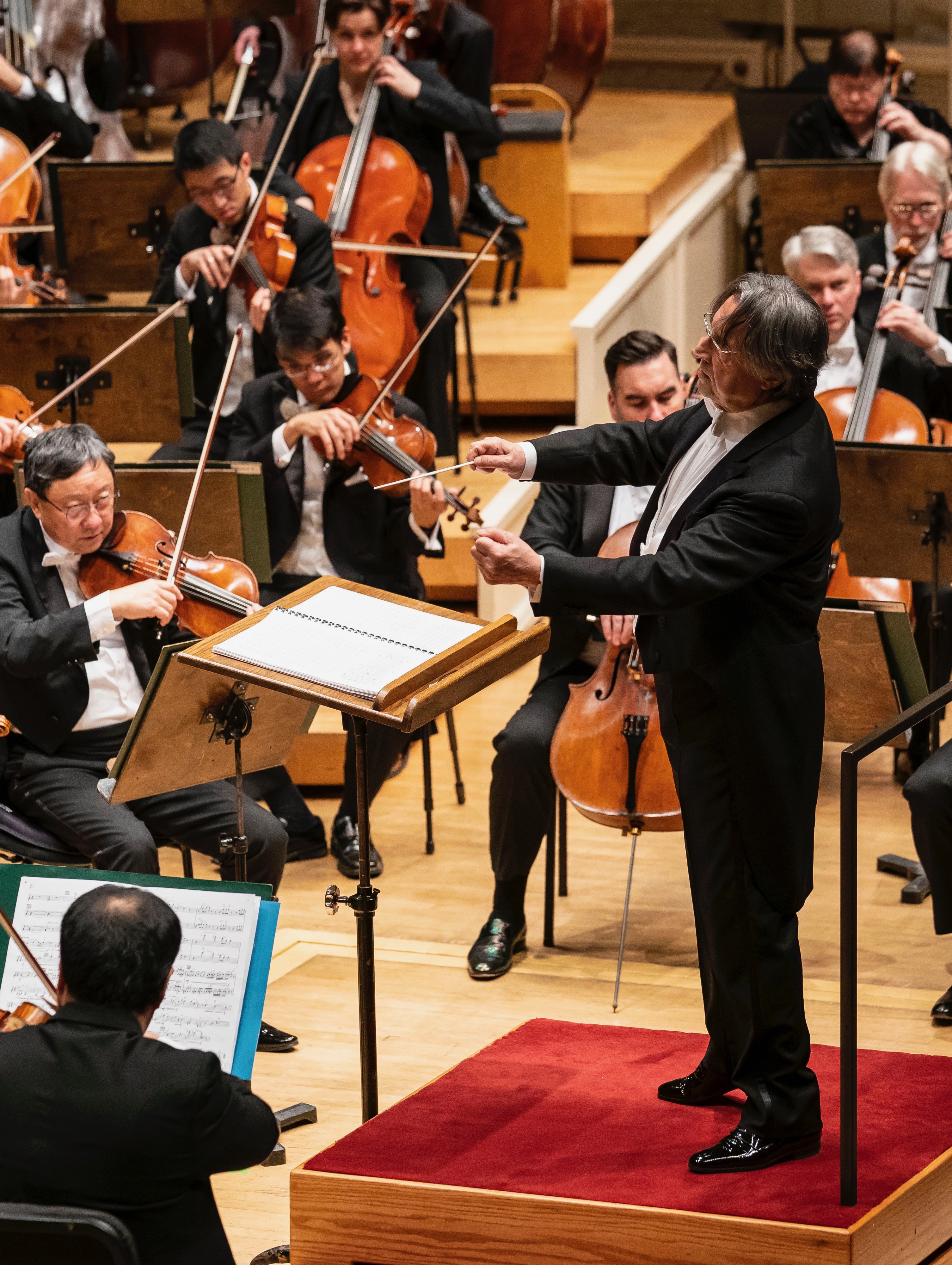
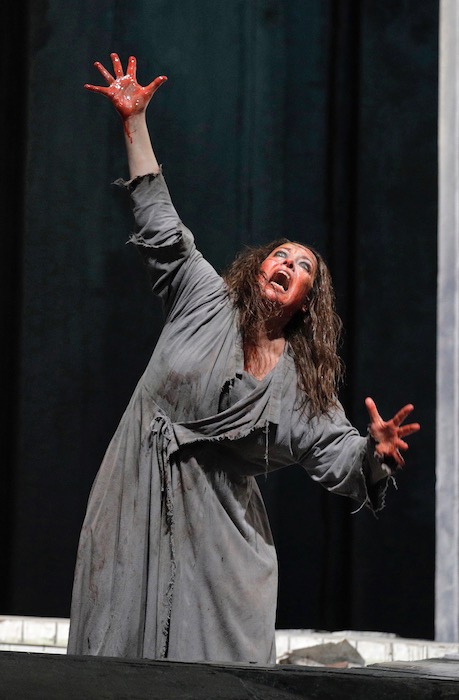

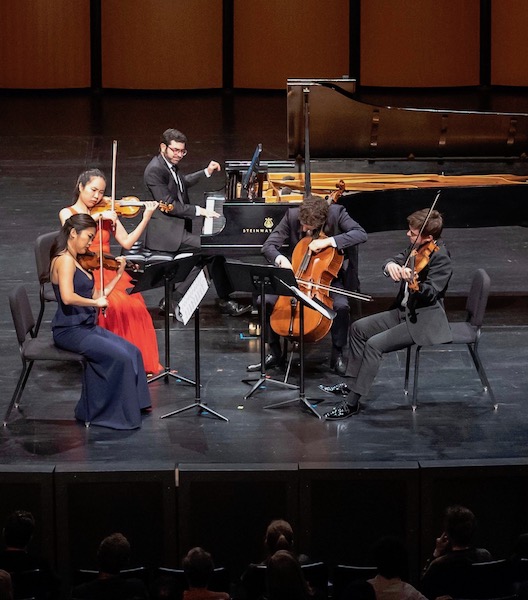
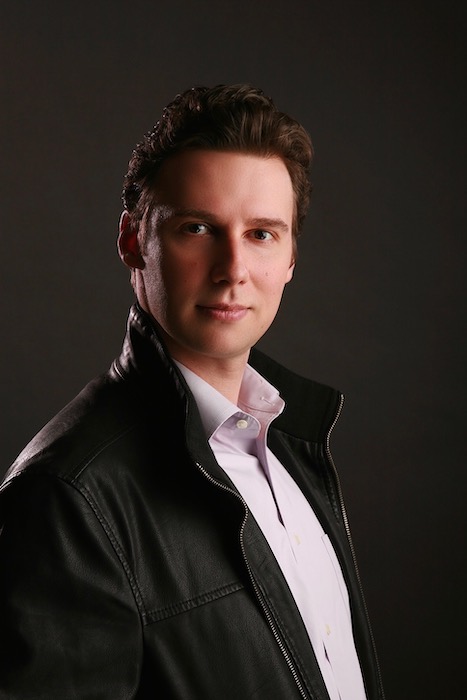
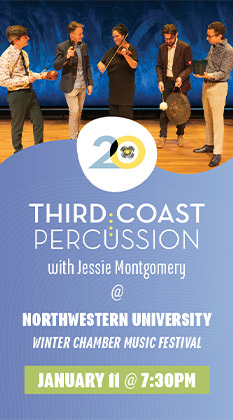
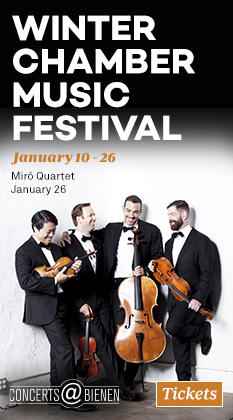

Posted Jan 05, 2020 at 1:06 pm by Ger A
Great Post!
Congrats again on Ten Years of CCR. Don’t stop please.